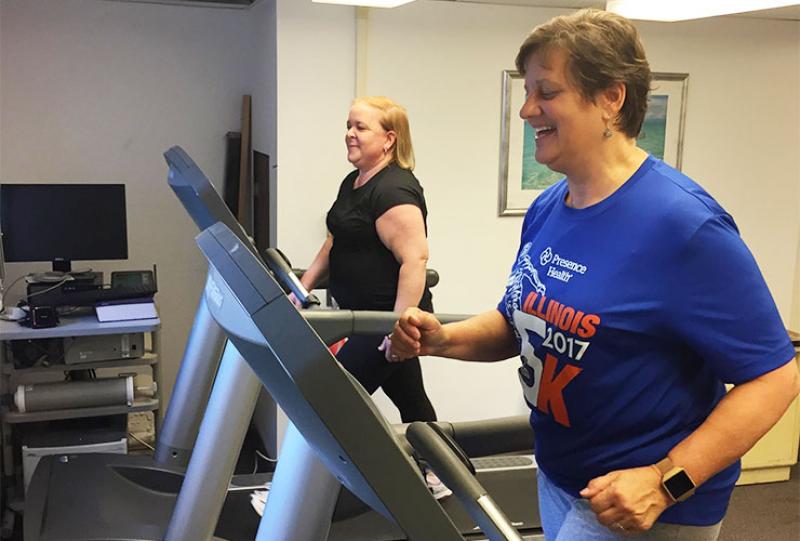
Can exercise help cancer survivors overcome negative effects of treatment?
Cancer survivors have many obstacles to overcome to achieve a sense of normalcy. A University of Illinois researcher believes she can help combat some of these problems with a cost-effective tool of exercise.
Kinesiology and Community Health assistant professor Neha Gothe has initiated the STAY Fit study, which stands for Strength Training, Aerobic walking and Yoga for cancer survivors.
Gothe is enrolling cancer survivors ages 30-70 to take part in a 12-week fitness program aimed at reducing some of the negative effects of cancer treatments such as functional fitness, fatigue, lack of sleep and brain fog.
The study’s aims are to measure how participants’ fitness and quality of life have improved over the study span, but primarily, Gothe said she’s focused on cognitive function.
“We are looking at cancer-related cognitive impairment. It’s a very understudied phenomenon,” she said. “Up to 70 percent, and some studies show that more than that percentage of cancer survivors, regardless of cancer type, report these subjective complaints, that they feel like they are not functioning optimally when it comes to their memory or they can’t stay as focused as they used to. It is particularly common during and after treatments, especially chemo and radiation, but has also been documented before patients begin treatment. Only in the late ‘90s CRCI was formally recognized as a quality of life matter that deserved higher priority in clinical research."
Gothe said the National Cancer Institute and National Institutes of Health have since encouraged researchers to design and conduct interventions to understand what’s causing CRCI and how to prevent and treat it.
“People are looking for solutions outside more medications,” Gothe said, which is a driving factor for STAY Fit study’s yoga-based holistic approach.
The study participants are randomly placed into one of three groups, either the strength group, aerobic walking or yoga, with two trainers assigned to each group of 10-15 people. The groups are kept purposely small to ensure participants get equitable treatment and to ensure healthy group dynamics.
All participants wear a heart monitor during the sessions, which run 60-90 minutes, and they’ll exercise 2-3 times a week for a total of 150 minutes as prescribed by the Center for Disease Control and American Cancer Society.
The STAY Fit exercise sessions begin Aug. 26 and runs through Nov. 15. Given the community engagement and interest in the study, Gothe and her research team will run another 12-week program in the new year starting Jan. 27, 2020.
Spots are limited, and you can visit https://bit.ly/2QRkB9w to sign up.
